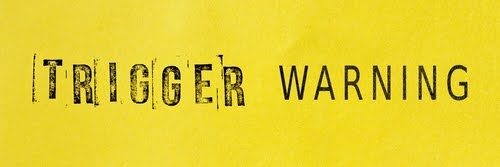
As a publisher I get this question a lot: Do you agree with trigger warnings on books?
There was a fantastic article written by Jamie Beck on Writers Unboxed you can find here:
I agree 100% with Jamie that this is a complicated question. However, having looked at what so many are saying I have a way I look at this topic.
One of my first realizations of how this can be important to readers was my discovery of websites such as https://www.doesthedogdie.com/ where it lists any books, tv or movies where a dog is injured or dies. Some people may laugh at this notion, however, for so many this is an issue to the point where a website like this needs to be created and maintained.
In the article by Jamie it was brought up that TV and Movies are including these warnings now as a standard. Some might wonder why these were introduced? Or even the warning system of G, PG, R, etc for movies?
The truth is that there is an audience for any type of TV, Movie or Book. Most would not want a four-year-old to watch a graphic horror movie, so yes, letting a parent know that “Red Riding Hood” (a 2003 horror movie) has an R rating is potentially important.
But with books, should you let the audience know what they are potentially in for? This is where this debate comes in. If giving these warnings are you doing spoilers or potentially alienating an audience? The answer is Yes and No.
Using the example above, yes, you might alienate part of your audience if you indicate that a dog dies in your book. With that said, the truth is that for some people this is a topic that they simply cannot handle and can cause them to have serious issues if they are suddenly presented with a dog dying in a book they are reading. When someone is “triggered” by something they read or watch, they are the ONLY ones who can determine how that will or did affect them. This is a topic of the individual’s mental health.
Now, if we are talking about the fact that the dog dying is the end of the book, like in Where the Red Fern Grows, one of my childhood favorite stories. Then yes, I could also see how you might be having a spoiler. However, as with any book or movie, a person is going to decide to read or watch regardless of letting them know a topic may be featured in the story. You are not saying a dog dies at the end of this book. They have no idea where this features in the story or what effect it has on the plotline.
I think letting people know that the book contains potentially triggering scenes does not actually spoil the book. When people read it, they are doing so to get engrossed in the story. You have a book that has potentially one-hundred-thousand words, how does one to five words letting people know something might trigger them derail your story?
Would you rather have a reader walk away from one of your books having been triggered and dealing with that? They are not going to recommend your book to others. They are also not going to leave you a good review. They will also not follow your or buy other books you have written. So what did the sale cost you versus the royalties from that one book? Heck, they may even post poor reviews announcing critical plot points because they are so upset by being triggered.
Every person needs the option of caring for their own mental health. How they do this is up to them and if a trigger warning makes them choose not to read your book. This is not a lost reader. This is someone who was not one of your audience to begin with. If a reader sees a trigger and thinks it gives away the story, they are also not your audience.
A person once told me you could walk into a room of 100 people and all of them could love your book, some could love your book or none could love your book. It does not make your book any less amazing, it just means they are not your audience. There are millions of people out there who will be. Find them!
Ultimately this is a personal decision for the author in the way that many of how you present your books to the world should be. But when looking at the choices such as your genre (BISAC codes), key words and other metadata, remember the reason behind the triggers and if you feel you want to communicate these to your potential readers.
If you do, I recommend putting them under the blurb or in the forward of your book. You can also put them on your website for reference and let readers know where to find them. This way it is making it their choice.
Yes, this is a hard topic and I might now have the “right” answer, but I hope this helps you look at this from another perspective.

